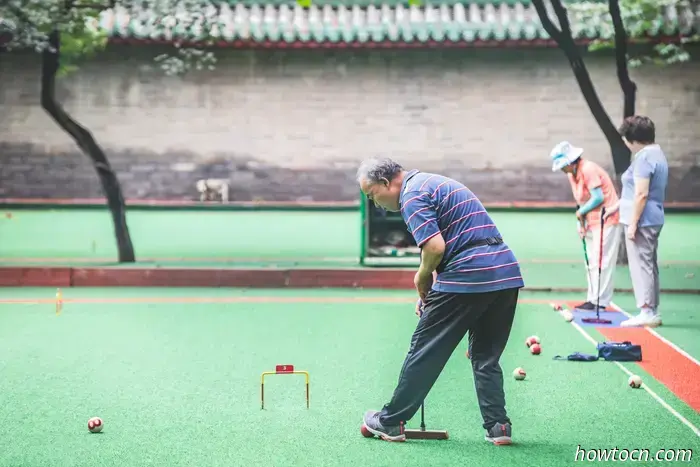
At six in the morning, before the espresso machines in the city start their daily buzz, Beijing's parks and sidewalks are already vibrant with activity: the gentle swishing of tai chi sleeves, the brisk footsteps of walkers, and the steady buzz of a portable radio playing revolutionary tunes. The sun has yet to peak over the tiled roofs of the hutongs, but the older generation is already present, moving through the streets with quiet confidence, carrying fans and birdcages.
For them, public space isn't a neutral environment; it is a familiar stage where routine, memories, and community intersect. In a city that is always in flux, where noodle stalls transform into boutiques in an instant and sidewalks are restructured for e-bike delivery routes, retirees find a sense of stability in routine. They return to the same spots, set up folding chairs beneath familiar trees, and stake their claim not through protests but through their presence.
Beneath the shade of a locust tree, two men lean over a weathered wooden board, their focus on the red and black pieces of Chinese chess (象棋 xiàngqí). Each move is marked by the sharp sound of wood striking wood, a noise that attracts onlookers from nearby benches. No one asks to join; they simply filter in, drawn by habit and the unvoiced invitation of the intense focus. There is always discussion: soft-spoken strategies, playful jabs, and the knowing chuckle of someone who anticipated a move before it occurred. These games serve more than just competition; they are a form of conversation, a rhythm of connection cultivated over years.
A little farther away, another ritual begins. Men arrive with birdcages wrapped in embroidered fabric. With gentle care, they unveil the birds and hang the cages from low branches, creating a harmonious choir of thrushes and larks. The birds stretch their wings and sing into the morning air while their caretakers pour tea, lean back, and either chat softly or sit in silence. Here, companionship doesn’t necessitate words. The birds sing for them, and that suffices.
As the day goes on, the rhythm changes. Mahjong tables emerge on roadside platforms and near market entrances. Players squat on low stools, their faces shaded by broad-brimmed hats or faded towels fashioned like turbans. The tiles snap against the table in their own distinct rhythm. Others gather not just to observe but to provide commentary, share jokes, or discuss the mundane dramas of daily life. Conversation topics meander: celery prices, medication side effects, the latest soap opera, or whether a grandson's girlfriend is “too slim to withstand the winter.” When victory comes, it is acknowledged with little more than a smug grin and a murmured “not too shabby today.” It’s not about monetary gain; it’s about rhythm, about being present.
Every movement has its own choreography. Some bring stools strapped to bicycles; others push shopping carts laden with speakers and water bottles. A woman might unfold her silk fan and start dancing to a pop remix of a classic ballad, eyes closed, arms outspread, moving as if she is entirely immersed in the moment. By late morning, they start to disperse, making way for younger crowds hurrying to work. The park vacates, but the warmth remains in the air like the echo of a beloved song.
In an era where public spaces are increasingly influenced by commercial interests, where access is often restricted by signs or tickets, the quiet presence of Beijing's elders seems subtly defiant. They are not just users of space; they are its guardians. Their existence serves as a reminder that the city is not solely for the swift and the youthful, but also for those who understand how to embrace slow moments, listen, and simply exist.
There’s nothing sentimental about this; it’s merely continuity folded into a fan, clicked into a chessboard, rising like birdsong above the clamor of a waking city.



Investigating the morning habits of the elderly in Beijing.